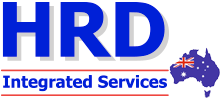FAQs
Explore our FAQs page for comprehensive answers to common questions about our services, policies, and procedures. Find helpful information and clear guidance on enrollment, training, certification, and more. Our goal is to provide you with quick and accurate information to address all your queries efficiently.
I want to become a Rail Signal Technician. What do I need to do?
To become a qualified rail signal maintenance technician you need to be employed by an authorised Australian rail operator (eg MetroTrains Melbourne, V/Line, ARTC) or a rail infrastructure construction company (eg John Holland Group, UGL Limited) as either an APPRENTICE rail signalling technician or as a TRAINEE signalling technician.
As an apprentice, you’ll be undertaking a UEE30820 Certificate III in Electrotechnology Electrician and at the same time you’ll start your UEE41223 Certificate IV in Rail Signalling.
If you’re a trainee, you’ll already hold your electrical trade qualification, which means you’re eligible to enrol in the UEE41223.
Holding the electrical trade qualification is an essential prerequisite to being able to complete the Certificate IV.
I'm a Signals Engineer. Can I obtain the UEE41223 by RPL?
A person seeking RPL for the UEE41223 must meet all qualification prerequisite requiments.
There are two critical aspects to meeting prerequisites:
- You must hold a current Australian Unrestricted Electrician's Licence or equivalent (eg an 'A Class' electrician licence). Without this, an applicant cannot proceed.
- You must be able to demonstrate currency of skills against each unit of competency that forms the qualification. HRD required that you:
- undertake practical assessment to demonstrate your skills and knowledge; and
- support your application with workplace documents that substantiate recent use of skills in a live rail environment
Note: a log book is NOT regarded as definitive supporting evidence in the same way as signed and dated workplace forms. Log books may be presented to supplement recognised workplace documents.
The training and role requirements for a signals engineer are different to those of a trade-qualified signals maintainer. As a rule of thumb, an Electrical Engineer, regardless of whether or not their qualification specialises in rail signalling, would find it difficult to substantiate the application of trade skills in a live rail environment.
Prospective RPL applicants are encourages to familiarise themselves with the UEE41223 qualification packaging rules before contacting HRD.
Why do I need to be employed in rail/rail signalling to undertake the UEE41223?
Employment with a rail operator is essential because you need to have access to working signalling infrastructure to be able to complete your training.
Rail operators prefer to have personnel trained to meet their requirements. Without access to signalling equipment, you cannot practice the knowledge and skills you develop during training.
Training is also costly, so the support of an employer is essential. Added to this, vacancies for signal maintenance personnel are limited by rail operator requirements. Employers hire and train in response to their needs. There is no value in training someone for a job that is not there.
